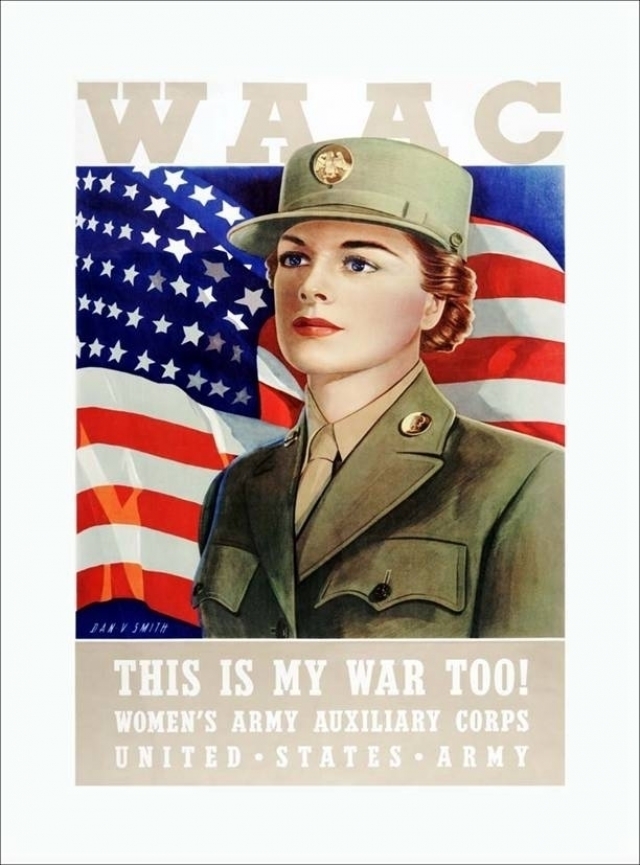
In our podcast, we explore the evolution of the roles of women in the military since WWII and the unique challenges they had to overcome to go from WAAC to Warriors, with a detailed lens at how TCU has helped women succeed in the military sphere.
Sources
War Department. It’s Your War, Too. US National Archives. 1944.
A Veteran’s Experience in the Women’s Army Corps (WAC) During World War II. Iowa PBS. September 14, 2015. Accessed December 4, 2023.
Further Reading
Bailey, Beth. “A Higher Moral Character:” Respectability and the Women’s Army Corps. In Beth Bailey, Alesha Doan, Shannon Portillo, and Kara Dixon Vuic, eds., Managing Sex in the U.S. Military: Gender, Identity, and Behavior . Lincoln: University of Nebraska Press, 2022.
Meyer, Lisa. Creating G.I. Jane: Sexuality and Power in the Women’s Army Corps During World War II. New York: Columbia University Press, 1998.
Smith, Margaret. My Life as a WAC. (Conneaut Lake, PA: Page Publishing, 2021).
Meet Our Guest
For our episode, we had the privilege of interviewing the renowned researcher and American historian, Beth Bailey. Recently named an Andrew Carnegie Fellow, Bailey currently works as a Foundation Distinguished Professor of History at the University of Kansas, where she founded and directs the Center for Military, War and Society Studies. Twice awarded the Army Historical Foundation Distinguished Writing Award, her research has been supported by the National Endowment for the Humanities, the Woodrow Wilson International Center for Scholars, and the American Council of Learned Societies. Georgia born and raised, Bailey has led a highly influential career as a researcher and historian of the recent United States. Her research focuses on the history of gender and sexuality, and her work has been highly influential in understanding the effects of gender within the military and its broader societal implications.

Chloe Mantle
Chloe Mantle is a senior majoring in Strategic Communication with a minor in Communication Studies. She will graduate in December 2023 with a Bachelor of Science in Strategic Communication and enter the workforce as a public relations practitioner. As a communications major, Chloe feels a sincere respect for the power of communication and found great interest in understanding and deconstructing the ways in which communication impacted perceptions of the roles of women in the military.

Diego Velasquez
Diego Velasquez is a Senior , majoring in Political Science and pursuing a minor in Economics as well. A Nicaraguan-American, born and raised in Nicaragua, Diego left his country due to political turmoil and a lack of economic opportunities. He is passionate about politics and understanding the forces that cause countries like his own to fail to democratize. His passion for justice also led him to take an interest in women and gender politics within the US military.